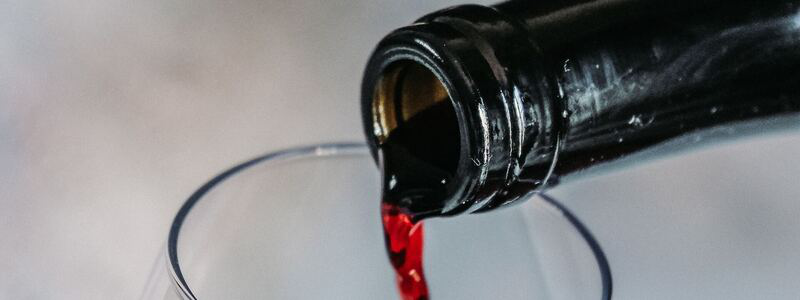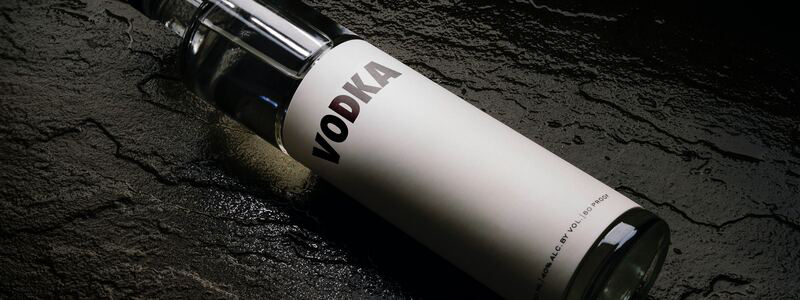Is Wine or Vodka Better for Your Liver?
When it comes to alcohol consumption and its effects on the body, the liver often takes center stage. The liver plays a crucial role in processing alcohol and detoxifying the body, but excessive alcohol intake can lead to severe liver damage and even life-threatening conditions such as cirrhosis. As the debate over the health benefits and drawbacks of different types of alcohol continues, the question arises: Is wine or vodka better for your liver?
For family members with loved ones battling addiction and individuals struggling with addiction themselves, understanding both the effects of alcohol on the liver and its potential implications for weight gain or weight loss is crucial in making informed choices and seeking appropriate treatment. In this article, we delve into how alcohol affects the liver, its impact on weight and provide comprehensive information about alcoholism and rehabilitation.
There are several options and approaches to addressing problematic addictions, and it’s essential to understand what best suits your particular lifestyle or situation. Contact us at the Alpine Recovery Center for more information. We are the best Colorado Medicaid alcohol rehab program. Call us at 720-704-2883.

Does Liquor Make You Fat?
Liquor, like other forms of alcohol, contains calories. These calories provide energy but lack essential nutrients. Consuming alcohol in excess can lead to weight gain as the body tends to prioritize metabolizing alcohol before burning fat or carbohydrates. Additionally, alcoholic beverages are often mixed with high-calorie sugary drinks, contributing to weight gain.
What is the Best Alcohol for Weight Loss?
Weight loss is a common concern for many individuals, and the role of alcohol in this process is often questioned. When it comes to alcoholic beverages, it’s important to note that they can contribute to weight gain due to their calorie content. However, some types of alcohol may be more favorable than others for those aiming to lose weight or improve their fatty liver condition.
For instance, choosing a lower-calorie option such as light beer, dry wine, or distilled spirits with low-calorie mixers can help reduce calorie intake while allowing an occasional indulgence.
It’s crucial to remember that moderation is key, and alcohol should never replace a balanced diet and regular exercise when aiming for weight loss.
Can I Consume Alcohol if I Have Fatty Liver?
Fatty liver disease is a condition characterized by the accumulation of fat in the liver cells. Alcohol consumption can worsen this condition by causing inflammation and further fat deposition in the liver. For individuals with fatty liver disease, it is essential to prioritize liver health and abstain from alcohol completely. No specific alcoholic beverage can be considered “best” for fatty liver, as even moderate alcohol consumption can be detrimental. Instead, focusing on a healthy lifestyle, including a nutritious diet and regular exercise, is crucial for managing and improving fatty liver disease.
Understanding the relationship between alcohol, weight loss, and weight gain is vital for making informed choices. While some alcoholic beverages may have fewer calories or a lower impact on fatty liver, it is essential to approach alcohol consumption with caution and moderation

How Does Alcohol Affect The Liver?
Alcohol, regardless of its form, can have detrimental effects on the liver when consumed excessively. The liver, a vital organ responsible for various metabolic processes, plays a central role in processing alcohol. Understanding how alcohol affects the liver is essential for comprehending the implications of alcoholism on overall health.
Excessive alcohol consumption can lead to acute and chronic liver damage. When alcohol is metabolized in the liver, it produces toxic byproducts that can cause inflammation and scarring. This condition, alcoholic hepatitis, can potentially progress to a more severe liver disease called cirrhosis. Regular and prolonged alcohol abuse significantly increases the risk of developing these conditions.
Among all cirrhosis deaths in 2019, 50.3% were alcohol-related.
In the ongoing debate about wine versus vodka, it is essential to note that there is no worst alcohol for your liver; all forms of alcohol can harm the liver when consumed excessively. While some claim that certain types of alcoholic beverages, such as wine, may have potential health benefits, moderation remains key.
Additionally, it is vital to recognize that personal factors, such as overall health, genetic predisposition, and individual tolerance, can influence how liquor affects the liver.
What About Alcohol and Kidneys?
Alcohol can have detrimental effects on kidney function too. Alcohol acts as a diuretic, leading to increased urine production and potentially causing dehydration. Dehydration can strain the kidneys, impair their ability to filter waste products effectively and disrupt the body’s electrolyte balance. Over time, this can contribute to kidney damage and the development of conditions such as chronic kidney disease.
Is Beer Good or Bad for the Kidneys?
Moderate beer consumption is generally considered safe for healthy individuals. However, excessive and chronic alcohol intake can harm kidney health regardless of the specific beverage. The diuretic effect of alcohol, including beer, can put a strain on the kidneys and increase the risk of dehydration. Additionally, heavy alcohol consumption can contribute to high blood pressure, a leading cause of kidney disease.
It is important to note that any potential benefits of beer may not outweigh the risks associated with excessive alcohol consumption. Therefore, it is always recommended to consume alcohol, including beer, in moderation and consider individual health conditions and circumstances.

Wine or Vodka: Which is Better for Kidneys?
When comparing wine and vodka regarding their impact on kidney health, it is essential to remember that consuming any type of alcohol in large quantities can be harmful regardless of the specific beverage.
Wine, beer, whiskey, and vodka contain alcohol, which can strain the kidneys and lead to dehydration if consumed excessively. Therefore, practicing moderation in alcohol consumption is crucial.
Liquor can have an impact on liver and kidney health when consumed in excessive amounts. While moderate alcohol consumption may not pose significant risks for healthy individuals, it is important to be aware of the potential harm that excessive alcohol intake can cause to the liver and kidneys. Making informed choices, practicing moderation, and considering individual health conditions are key steps to maintaining kidney health while enjoying alcoholic beverages responsibly.
Wine or Vodka for Your Liver? Both Do Harm
Alcoholism, or alcohol addiction, extends far beyond the physical health implications. It can significantly affect a person’s social life and daily functioning. Here are some ways alcohol addiction can impact individuals:
- Strained relationships: Alcoholism can lead to strained relationships with family, friends, and loved ones as alcohol takes priority over meaningful connections.
- Social isolation: The consequences of alcoholism can result in isolation and detachment from one’s social support network.
- Disruption of daily life: The obsession and compulsion to consume alcohol can consume an individual’s thoughts and actions, often leading to neglect of responsibilities and obligations.
- Impaired occupational functioning: Alcohol addiction can affect job performance and career prospects, impairing one’s ability to maintain stable employment.
- Financial difficulties: Excessive spending on alcohol or the inability to maintain stable employment can lead to financial hardships.
It is important to raise awareness about the gradual development of alcohol addiction through regular consumption of wine, vodka, beer, or other liquors.
By recognizing the signs of alcohol addiction and seeking assistance, individuals can make a life-changing decision to seek help and support.
Alpine Recovery Center – Colorado
Alpine Recovery Center is a trusted rehab provider in Colorado that accepts Medicaid as coverage for program admission. Our dedicated team of professionals understands that overcoming binge drinking requires addressing the underlying causes, developing healthier coping mechanisms, and building a solid foundation for long-term recovery. Our comprehensive approach to addiction treatment combines evidence-based therapies, personalized care, and a supportive community environment, all accessible with Medicaid.
Remember, you are not alone in this journey—help is just a phone call away.
Call Alpine Recovery Center at 720-704-2883.










